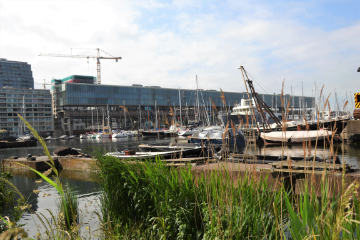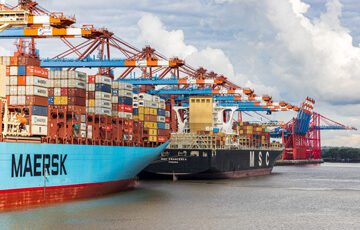
Breach of contract in the Netherlands is any failure to fulfill a contractual obligation attributable to the debtor. You automatically gain the right to compensation in the Netherlands once the breach is attributable and the supplier is in default or performance has become permanently impossible. This regulation follows from Article 6:74 of the Dutch Civil Code and applies to all business agreements, from simple deliveries to complex service contracts. In this article, our Dutch attorneys shall explain the most important aspects of the compensation for breach of contract by suppliers under Dutch law.
Dutch legal practice distinguishes three main categories of breach: non-performance (supplier fails to deliver entirely), defective performance (delivered products contain defects), and late performance (deadlines are exceeded). Moreover, the crucial distinction exists between obligation of means and obligation of result. Product suppliers typically face an obligation of result – the product must simply meet specifications. Service providers, however, often have an obligation of means, requiring them to act competently and carefully according to professional standards.
Entrepreneurs in Amsterdam and throughout the Netherlands experience discussions about defective performance in approximately 18% of all supplier agreements annually. The financial impact ranges from minor corrections to existential threats for businesses dependent on timely delivery or correct service provision. Therefore, understanding your rights becomes essential when suppliers fail to meet their contractual obligations.
How do you formally place a supplier in default in the Netherlands?
The notice of default is a written demand giving the supplier a reasonable period (typically 14 days) to remedy the breach. Only after this period expires does default occur and the right to compensation arise. This procedure is mandatory unless performance has become permanently impossible or the supplier has explicitly indicated they will not perform.
Your notice of default must meet three core requirements. First, you describe specifically which contractual agreement the supplier violates – refer to specific articles in the contract, quotation or general terms and conditions. Second, you provide a realistic remediation period proportional to the nature of the breach. For a critical IT system that fails to function, this period might be 48 hours, whereas for delayed delivery of office supplies, 14 days is reasonable. Third, you state which legal steps you will take if performance remains absent: termination, compensation, replacement delivery by third parties.
Send the notice of default via registered mail or email with read and delivery confirmation. Store these digital evidence items carefully – they form the foundation of your subsequent claims. Amsterdam jurisprudence regularly shows that claims fail because entrepreneurs cannot provide proper proof of dispatch.
Furthermore, you must complain within a reasonable period about detected defects. This period varies per industry but typically ranges from several days (perishable goods) to several months (complex machinery). Failure to do so may forfeit your rights. This complaint obligation applies even before sending a notice of default – a timely protest letter is essential.
What rights do you have after issuing a notice of default under Dutch law?
After the specified period expires, you possess four main rights: enforce performance through court, terminate the agreement, claim additional or substitute compensation, and suspend your own payment obligations. These remedies can be combined under certain conditions, for example termination plus compensation.
Suspension of payment
The suspension right (Article 6:52 Dutch Civil Code) offers a powerful pressure tool. Once a supplier fails attributably, you may halt your payment obligations until remediation occurs. However, the suspended amount must be proportional to the damage suffered. With an invoice of €10,000 for a complete IT system where 90% functions correctly, you cannot block the entire payment – maximum €1,000 in this example.
Additionally, coherence must exist between the claim and the obligation. You cannot suspend payment for product A because product B is defective, unless both are part of one integral agreement. Dutch courts apply this coherence requirement strictly.
Always announce suspension in writing stating the legal basis, the suspended amount and conditions for lifting. Unlawful suspension makes you liable for delay damages to the supplier – a costly error that costs entrepreneurs damages per incident. Consequently, legal advice before suspending payment proves worthwhile.
Termination of the agreement
Termination ends the contract with retroactive effect. You can terminate extrajudicially through an unambiguous written statement to the supplier, or judicially through summary proceedings or main proceedings. Extrajudicial termination works faster and cheaper, but brings procedural risks if the court later rules the termination was unjustified.
The breach must be sufficiently serious to justify termination. For minor defects, remediation or price reduction suffices. Dutch judges test this against Article 6:265 Dutch Civil Code: termination is possible when the breach reasonably justifies it, considering the nature and seriousness of the breach and interests of both parties. Therefore, proportionality determines whether you can terminate validly.
Claiming compensation
Additional compensation covers extra costs while the agreement continues – consider delay damages, lost profits during the non-conformity period, or costs for temporary alternatives. Substitute compensation replaces performance and includes the positive contract interest: the difference between the contractual performance and the value of what you actually received.
Your compensation includes direct damage (repair costs, diminished value, replacement costs) and indirect damage (lost revenue, reputational damage, contractual penalties to your own clients). However, many general terms and conditions limit or exclude liability for indirect damage. Such exoneration clauses are valid in principle in B2B relationships, as the Arnhem-Leeuwarden Court of Appeal consistently confirms. Negotiating these clauses beforehand protects your interests better than challenging them afterwards.
How do you calculate the extent of your damage in the Netherlands?
Compensation must cover all disadvantages directly resulting from the breach, insofar as these were foreseeable at contract conclusion and have causal connection with the breach. You bear the burden of proof for existence and extent of damage – therefore document meticulously.
Suppose a supplier delivers a production machine three months late. Your direct damage includes: rental costs (€4,500) for a replacement machine, extra labor costs (€6,000) due to inefficiency of the alternative, and transport costs (€800). Your indirect damage consists of lost profit (€45,000) because you had to decline a lucrative order due to lack of capacity, plus a contractual penalty (€15,000) your own client imposed on you.
Document each cost item with invoices, order confirmations, email correspondence and possibly an accountant’s statement. For lost profits, the difference between gross revenue and actual profit is crucial – you must prove which variable costs you would have saved. Amsterdam lawyers advise preparing a damage statement: a detailed specification per damage item with substantiation. This professional approach increases your recovery chances significantly.
Moreover, a damage mitigation obligation applies (Article 6:101 Dutch Civil Code). You must take reasonable measures to prevent or limit damage. If an alternative supplier was timely available at market-conform prices, then you should engage them. Failure to do so constitutes contributory negligence that reduces your claim. Courts scrutinize whether you acted as a reasonable entrepreneur would.
What are the limitations of liability under Dutch law?
In B2B contracts, exoneration clauses limiting or excluding liability are valid in principle, provided they are not unreasonably onerous or contrary to reasonableness and fairness. Consumers enjoy statutory protection prohibiting deviation, but entrepreneurs are expected to fend for themselves.
Typical exoneration clauses in supplier terms stipulate that liability remains limited to the invoice value, that indirect damage is excluded, or that the supplier is only obliged to repair, replace or credit at their own choice. The Arnhem-Leeuwarden Court of Appeal ruled such provisions permissible between professional parties, even when this means the purchaser must accept an incompletely usable product.
However, three categories of cases pierce exoneration clauses. First: intent or conscious recklessness by the supplier. No clause protects against fraudulent or deliberately negligent conduct. Second: personal injury caused by products or services – product liability applies here, which is mandatory law. Third: provisions that upon assessment under Article 6:233 sub a Dutch Civil Code prove unreasonably onerous, considering bargaining power, transparency, industry standards.
Entrepreneurs in Amsterdam assessing supplier terms therefore examine: the total risk profile (not only the liability clause), whether core obligations are excluded from exoneration, and whether insurance coverage exists for residual risks. A supplier guaranteeing delivery within 10 working days but subsequently excluding all liability for delay damage creates an empty shell – such provisions may be deemed unreasonably onerous. Consequently, holistic contract review prevents unpleasant surprises later.
How does breach of contract relate to force majeure in Dutch law?
Force majeure is a non-attributable breach beyond the supplier’s fault and not at their risk, whereby compensation obligation lapses. Suppliers regularly invoke force majeure for delays due to supply chain problems, natural disasters, pandemics or government measures.
Dutch law distinguishes absolute and relative force majeure. With absolute force majeure, performance has become permanently impossible – the contractual performance simply can no longer be delivered. Consider a unique artwork that burned. Both parties are then released from their obligations. With relative force majeure, performance is temporarily prevented or significantly burdened but not impossible. Here the performance is suspended during the force majeure period.
However, not every hindrance qualifies as force majeure. Dutch judges test strictly: was the event foreseeable at contract conclusion? Could the supplier have prevented or limited the consequences? Does the risk fall to the supplier according to common understanding? A manufacturer using one supplier for critical components can less easily invoke force majeure than a manufacturer spreading risks across multiple suppliers. Therefore, risk diversification strengthens your contractual position.
Moreover, many contracts explicitly exclude certain force majeure situations or allocate risks contractually. General terms specify, for example, that strikes at the supplier’s premises, currency fluctuations or raw material price increases do not constitute force majeure. Always check the force majeure clause in your agreement. Understanding these allocations prevents disputes about who bears which risks.
What role do general terms and conditions play in the Netherlands?
General terms and conditions largely determine your rights and obligations upon breach, but are tested against Article 6:233 Dutch Civil Code (voidability of unreasonably onerous terms) and Article 6:248 paragraph 2 Dutch Civil Code (reasonableness and fairness). However, professional parties using their own standard terms cannot invoke annulment of others’ terms (Article 6:235 paragraph 3 Dutch Civil Code) – the pot then accuses the kettle of being black.
Three conflict situations arise in practice. Battle of forms: both parties refer to their own terms that contradict each other. Dutch judges then often apply the knock-out rule: conflicting provisions both lapse and are replaced by statutory rules. Contradiction with individual agreements: specific contractual commitments prevail over general terms. Ambiguity: clauses are interpreted against the user (Article 6:238 paragraph 2 Dutch Civil Code).
Effective supplier management therefore requires you to negotiate core terms beforehand. Delete or limit exoneration clauses that unacceptably increase your risks, demand measurable service levels (SLAs) with contractual penalties, and establish complaint procedures with response periods. Amsterdam entrepreneurs neglecting this due diligence pay on average 23% more for compensation lawyers than entrepreneurs arranging contractual protection upfront. Prevention proves cheaper than cure.
When should you engage legal expertise under Dutch law?
Consult a specialized lawyer in the Netherlands once damage is substantial (indicatively from €10,000), the supplier contests termination, or complex legal issues arise regarding attributability, causality or exoneration clauses. Early legal advice prevents procedural errors that later become irreparable.
Dutch lawyers in contract law typically charge hourly rates between €200-€400, depending on seniority and specialization. For standard procedures (notice of default, extrajudicial termination, negotiations) you can often agree a fixed fee, for example €2,500-€5,000 for a complete trajectory up to settlement. Judicial procedures follow different cost structures: main proceedings in commercial disputes cost on average €15,000-€35,000 in legal fees plus court fees and expert costs.
However, Article 6:96 Dutch Civil Code stipulates that extrajudicial collection costs form part of compensation if reasonable. This concerns costs of one or two demand letters according to the BIK tariff (€40-€6,775 depending on principal sum). Procedural costs are reimbursed according to the liquidation tariff – typically only 30-50% of actual legal costs. Consequently, cost-benefit analysis should guide your decision to litigate.
Specialists in contract law in Amsterdam therefore advise: attempt amicable settlement before litigating. Approximately 65% of breach procedures still end in compromise, often after substantial costs. Engage a specialized mediator who facilitates a business solution within several sessions – this saves time, money and relationship damage. Mediation offers structured negotiation with legal protection.
What are common mistakes in breach of contract cases in the Netherlands?
The three most costly errors are: immediately engaging an alternative supplier without giving the original supplier opportunity to remedy, suspending without proper legal basis, and failing to complain within reasonable time about defects. These procedural errors drastically weaken your legal position.
Consider an entrepreneur hiring a software supplier for a custom ERP system. Upon delivery, various modules fail to meet specifications. Without formal notice of default, the entrepreneur directly engages another party for €45,000 to adapt the system. The original supplier subsequently refuses payment of their invoice (€60,000) and refuses to reimburse repair costs. In proceedings, the court rules the entrepreneur violated their repair obligation (Article 7:23 Dutch Civil Code) – the supplier should first have received opportunity to remedy free of charge. The entrepreneur can only claim limited discount.
Additionally, entrepreneurs often underestimate the evidentiary challenge. For complex services or technical products, expert evidence proves crucial. Timely engage a technical expert who establishes defects, proves causal relationship with the breach, and quantifies repair costs or diminished value. Such expert reports cost €2,500-€10,000 admittedly, but form the foundation of successful proceedings. Investment in quality evidence pays dividends during litigation.
Furthermore, risk exists of premature payment under protest. Some entrepreneurs pay an invoice “subject to set-off” or “under protest”, but formulate this insufficiently clearly. Effective protest payments require an explicit, simultaneous written statement explaining the legal basis of your objection and indicating you make payment only subject to reclaim. Vague reservations lack legal effect and weaken your position unnecessarily.
How do you prevent future disputes with suppliers under Dutch law?
Prevention through contractual risk allocation, clear specifications and structural supplier monitoring reduces breach incidents by an estimated 40-60%. Therefore invest in robust contracts and active supplier management.
Start with detailed specifications of the product or service to be delivered. Vague descriptions lead to interpretation differences. For IT projects, you work with functional and technical requirements, acceptance criteria and test procedures. For products, you define technical standards, quality standards, packaging requirements and inspection procedures. These specifications become annexes to the contract. Clarity at the start prevents disputes later.
Subsequently, you structure Service Level Agreements (SLAs) with measurable performance indicators and contractual consequences. For example: “Supplier delivers within 5 working days after order. Upon exceeding by 1-5 working days, 10% of invoice value lapses; upon exceeding by more than 5 working days, client has right to termination plus compensation of lost profit up to maximum 50% of order value.” Such liquidated damages clauses provide legal certainty and stimulate timely performance.
Additionally, you implement milestones with payment linkage for phased projects. Pay for example 30% upfront, 40% at interim acceptance and 30% after final delivery. This creates natural control moments and limits your financial exposure if problems arise. Phased payment aligns supplier incentives with your quality requirements.
Finally, you organize structural consultation with strategic suppliers: quarterly reviews evaluating performance against agreed KPIs, discussing risks and identifying improvement points. This proactive approach detects potential breaches early and facilitates constructive solutions before legal escalation becomes necessary. Amsterdam companies with mature supplier relationship management report 45% fewer contract disputes than companies without such processes. Investment in relationship management yields measurable returns through reduced conflict costs.
Breach of contract by suppliers requires adequate legal action. Consult a specialized lawyer in contract law in the Netherlands for analysis of your specific situation, guidance through formal procedures and maximization of your compensation. Contact us today for a no-obligation intake interview about your supplier dispute.









